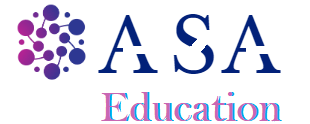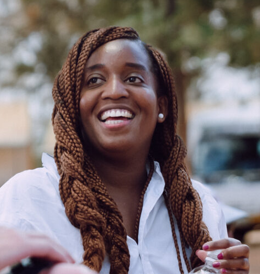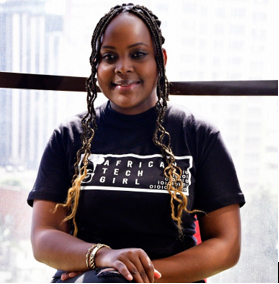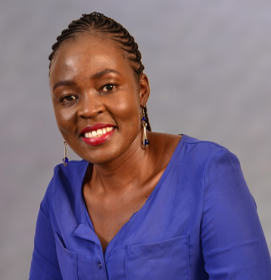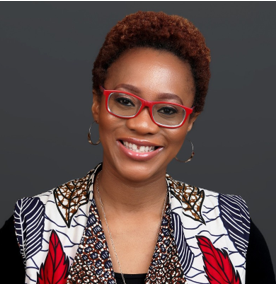Bringing people and ideas together to use technology to solve problems they care abou
A vocational digital skills course in Kakuma refugee camp: Connecting to learners’ lives
Kakuma camp was set up in Kenya in 1992, following a civil war in neighbouring South Sudan in East Africa. The UNHCR estimates that 200,000 people live in the camp today, although other data sources may record larger numbers of residents. 6 out of 10 people living in Kakuma camp are age 18 or younger.
Raspberry Pi FoundationRaspberry Pi Foundation
1 an 7 mois1 an 7 moisCambridge, England, United KingdomCambridge, England, United Kingdom
Senior Partnerships Manager | Kenya & South AfricaWe’ve designed a 100-hour, 10-week course called Using online digital technologies to create change for the Amala learners in Kakuma camp. The course focused on digital skills including making media and websites, with its content we adapted from our Computing Curriculum. The course pilot was delivered alongside Amala’s High School Diploma programme, which is the first internationally accredited course programme enabling refugee and host community youth to complete their education through flexible study.
Our thanks go to the Ezrah Charitable Trust for generously funding our work in this partnership.
Sharing lessons we are learning
We are learning a lot during this pilot, so we are writing a set of three blogs to share these lessons with you.
Today’s blog is Amala Education‘s perspective on their learners in Kakuma Camp, the purpose of digital skills education, and the course design and facilitation. We will also share our approach to adapting learning resources for the context of the Amala learners and using data to assess the course, and what other support we’ve put in place to ensure this educational project is self-sustaining.
Want to make computing education meaningful? Make it connect to learners’ lived experience
By Polly Akhurst (Co-founder and Co-Executive Director, Amala Education), Louie Barnett (Education Lead, Amala Education) & Ajak Mayen Jok (Programme Coordinator, Amala Education)
Our learners wanted a course that develops not just their digital literacy, but one that aligns with Amala’s agency-based learning model, which gives young people the skills to improve their communities. Many of our learners have limited experience of using digital tools but a huge desire to develop these skills, which they see as essential to improving their lives and the lives of their community members.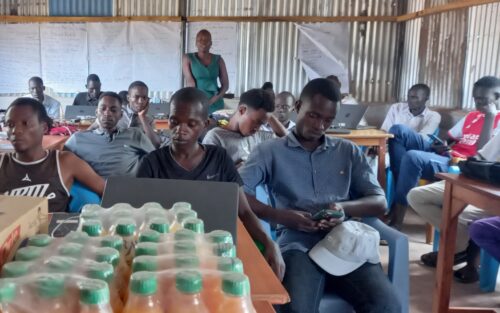
So we knew we needed a course that not just builds learners’ technical knowledge and skills but can also enrich their lived experience.
How would we do it?
Enter the Raspberry Pi Foundation team. We combined Amala’s agency-based educational approach with the Raspberry Pi Foundation’s experience in pedagogy and teaching about technology and digital literacy to design a course that truly resonates with our learners.
Developing a relevant digital skills course
Before developing the course, the Raspberry Pi Foundation team held focus groups with facilitators and learners in Kakuma camp to understand their needs. This helped them to pitch the 100 hours of course materials at the right level for the learners.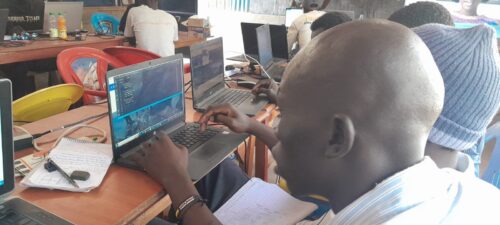
We called the course Using online technologies to create change. It takes the learners on a journey, building their foundation elements of computing and digital literacy. Learners start by finding out how digital devices work using input, process, and output. Then they move on to understanding computer networks. The course includes hands-on activities related to creating media, like filming and reviewing content and creating and choosing sounds to use in a podcast. There is also some light-touch web development with HTML and JavaScript. At the end of the course, learners design and deliver a presentation that reflects the work they’ve completed.
“Before I joined the course, I really didn’t know much about how to operate technology, but through the learning and the process, now I am able to learn something that will be beneficial for me and the people in my community.” — Learner in Kakuma refugee camp
Throughout the course, learners use their newly gained skills and knowledge to make their own project aimed at creating positive change. One example project is this website developed by Shyaka Cedric and other learners, which shares how podcasts and remote learning helped their community stay safe and healthy during the pandemic. Another group of learners used their photography and design skills to develop ID cards to keep Amala students safe within the camp. Having an Amala student ID card protects learners because they can prove their identity to their community and the police.
Facilitators from the camp make the course relatable
One of the great things about this course is that the Amala facilitators who taught the learners look, speak, and sound like them. Amala facilitators are from within the camp, and that they are relatable is great for learners’ self-confidence.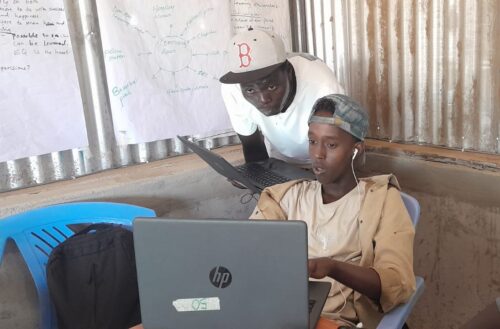
Having the course facilitated by fellow refugees removes the stigmatisation that the learners are vulnerable and sets the precedent that they can do anything if they put their mind to it.
“It gave me power of… getting involved with new things…Any challenge that comes my way I am willing to take after the Raspberry Pi class now…” — Learner in Kakuma refugee camp
While the Raspberry Pi Foundation team worked to make the course content relevant for the learners, our facilitators further localised the content to ensure its relatability for learners. Local contextualisation helps students to understand what they are learning, and to identify with the content — it’s not something out of the blue for them. Localisation is also important because it helps implement one of Amala’s cornerstones: decolonising the African curriculum.
Digital literacy is an urgent need
Because the learners in Kakuma camp lead complex social lives and face high levels of precarity, we decided to make the pilot course optional through our existing Diploma programme. We anticipated a modest enrollment rate, but instead over 100 people within the Amala learner community expressed an interest in this 75-person course. This showed us that the value and urgency of digital literacy in refugee communities is more pertinent than ever.
In a world where a lack of access to technology and digital skills exacerbates existing inequalities, it is critically important for young people who are disadvantaged to access meaningful learning opportunities. As one learner put it:
“I want to study this course because the current world is a digital world and I would like to acquire the skills to boost my computer skills and be able to help myself by getting a job and transforming the community through the digital world.” — Learner in Kakuma refugee camp
So what’s happening next?
We have a blueprint of what works in Kakuma refugee camp, and we are also learning what doesn’t. Bringing these lessons together will help us offer the course to more learners in Kakuma, and adapt the content in other locations, like our site in Amman, Jordan.
Look out for our follow-up blogs about the support we put in place to enable learners in Kakuma camp to participate in the course, and how we worked to create course content that is suitable for them.

